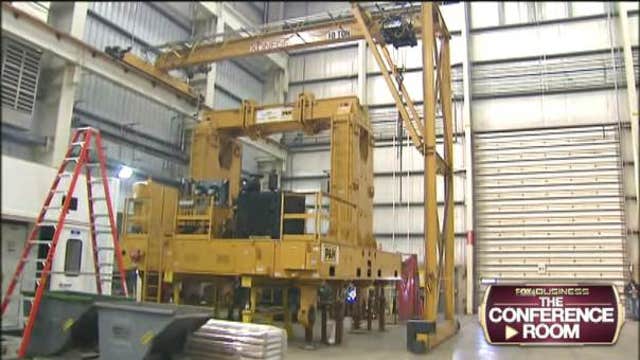No Lump of Coal for Family-Run Weldall Mfg
Walk into the lobby of Weldall Manufacturing in Waukesha, Wis., and you quickly realize you’re not at your everyday company.
What you don’t see: drab office furniture, trade magazines and a bubbling water cooler. Instead, visitors are greeted by a faux wildlife sanctuary -- there’s a taxidermied bear on hind legs, an elephant from Zimbabwe and some wild cats in pose, poised to attack prey -- all game previously hunted by owner and passionate outdoorsman David Bahl, Sr.
Bahl is indeed a proud and noted hunter, but for about two years, he says his company was also on the hunt -- for more than a hundred workers.
Between 2010 and 2012, Weldall Manufacturing, a producer of energy and mining equipment, more than doubled its workforce, while investing millions of dollars in expanding capacity. This growth propelled the family business into the ranks of Wisconsin manufacturer of the year, and attracted visits of prominent state politicians, such as former Gov. Tommy Thompson, who launched his recent failed U.S. Senate bid at the company. Wisconsin Gov. Scott Walker also made an appearance to tout the company’s job growth.
“In the last seven years we’ve purchased over $18.5 million in equipment, and that doesn’t include brick-and-mortar,” says Bahl.
Weldall’s business focuses in three areas: Canadian tar sands oil extraction; mining, in both coal and minerals; and nuclear power.
With so much global thirst for oil, business has been brisk in the tar sands sector. But Bahl sees coal demand beginning to temper -- so much so that after two years of hiring Weldall hit the pause button on recruiting, and pared back some of its workforce.
“We actually did lay-off about two, three months ago,” says Bahl. “We were at 273. And we dropped down to a tad under 250 [due to] a lack of orders.”
Stiffer coal mining regulations and the low price of natural gas are pushing utilities away from the black rock, says Bahl’s son, David Bahl, Jr., a co-owner who manages the plant floor.
“We still do a lot of mining with the iron ore and copper guys, but the coal has been depressed recently,” says Bahl Jr.
This shift coincides with a disappointing March jobs report, which showed only 88,000 jobs created, far below what was expected, including a loss of 3,000 manufacturing jobs.
But Bahl says Weldall is diversified and nimbly adjusting to the environment, thanks in large part to its on-site trained “family.”
“[A recent hire] said he learned more here in the first two days then in three years of [welding training],” says Bahl.




















